| Umělec 1998/2 >> The Budget Cut Or Exhausted Freedom of Art | Просмотр всех номеров | ||||||||||||
|
|||||||||||||
The Budget Cut Or Exhausted Freedom of ArtUmělec 1998/201.02.1998 Ada Krnáčová | theory | en cs |
|||||||||||||
|
There are a few ways to look at art and there are several possibilities to interpret it and make its current expressions legitimate. Looking back to history, it becomes obvious that the state which is so typical for today, that of the state of “nothing new“, started long ago. Perhaps it was for the lack of a certain power in the program which usually leads to innovation and avant-garde results. Currently, the state of “nothing new“ is so ingrained that nobody can even imagine changing anything at all. Since nothing really changes and we are merely watching “an illusion of the new“, trying to balance our feeling of stagnation against yet another portion of seeming innovations, marked this production a hall-mark of quality and novelty using mere apologetic rhetoric. “Art has become dependent on its commentary like never before. The portion of commentaries on aesthetic phenomena is on the rise. Art is no longer able to regenerate itelf out of its own strength. Tension and emotions are merely second-hand...“ (Henning Ritter, Frankfurter Allgemeine Zeitung, Jan. 17, 1998)
In an interview in The Artist, iss. 1/1998, Jiří Ševčík claims that the young generation is no longer self-conglaturatory and has started thinking in broader dimensions. I do not share this opinion, all the more so after having seen the Budget Cut exhibition. The issue of an artist’s position in society is no longer important. I think this is quite clear. An artist is no longer a clown, an entertainer who has the exclusive right to tell the ruler the truth without being punished for his sincerity. Neither is he a devoted loser praising the achievements of totalitarian regimes and their dictators, collecting rewards and material advantages, nor a cast-away or a so-called dissident. These days, an artist is a person enjoying no priviledges and rights. He has to prove his exceptional ad intellectual raison d’etre by his work. His excellence consists of his ability to abstract current events or express them in the language of visual art. But what if the “world“ the artists chose to make abstract is banal and uninteresting or what if the artist is just not able to communicate it? Unfortunately, both of these cases are a common occurrence in the Czech art scene and they outweigh cases when one may state that art still exists. From the point of view of globalization (a word repeated so many times these days), an artist should be a producer of a top product capable of competing in global market. Disregarding the sophisticated diction of certain local scientists oscillating between chaos and order of reinventing the invented, we may say that he should be a person who, by using specific artistic language, creates art that is communicative in its content, intelligent in its presentation and attractive in its appearance. It may be a simple definition, but it fits. Art is integrated into contemporary society more than we might admit. It has its place even though it is not a place we would like it to occupy. Is it just the task of the artist to achieve this place and keep persuading society of his art’s importance? Looking at the Budget Cut exhibition and realizing contemporary art’s ambitions (i.e. the ambition of being equal with contemporary film and music, being part of mass culture whether we want it to be or not), we must admit that perhaps the language art is using today is unintelligible. Why? Simply because at a certain point, art became hermetic and unintelligible, it ceased to communicate with the viewer and acquired a “mediator“, such as a theorist, a curator, etc. Thus it was the mediator who pushed the viewer out of the game and put him into a position of an observer who witnesses a physical experiment without really knowing what is going on. Comparing the language of film and music and the language of contemporary art, we find out that, despite dealing with the same issues, their means of expression are different. Language of visual art often suffers from lack of self-confidence, it is too complicated and worst of all nobody really understands it anymore. Can we be surprised to see people helplessly wandering through an exhibition, not understanding why blown up condoms stick out from a bed, why walls of the hall are covered with banal „truths“, why art is being presented as a few “Czech“ jokes, why there are a few paintings of flowers included in all of this? Ultimately, the viewer gives up saying that perhaps contemporary art is supposed to be like this and go and take care of their own “banal“ responsibilities. Perhaps the point is not to ask about the artist’s position in society but the role of the mediator as he is the one who is not able to selectively eliminate useless junk. What is the role of the mediator then? He serves as an animator who has to keep the attention of his customers at any price so that they’re not bored and so that they have something to be entertained by all the time. But do artists need their animators? Does anybody need them? In Budget Cut, the curators managed to keep the exhibition on one level and outline mental, intellectual and artistic qualities of young Czech artists (i.e. nothing new). Since they are young artists, we may expect their future development.
01.02.1998
Рекомендуемые статьи
|
|||||||||||||
|
04.02.2020 10:17
Letošní 50. ročník Art Basel přilákal celkem 93 000 návštěvníků a sběratelů z 80 zemí světa. 290 prémiových galerií představilo umělecká díla od počátku 20. století až po současnost. Hlavní sektor přehlídky, tradičně v prvním patře výstavního prostoru, představil 232 předních galerií z celého světa nabízející umění nejvyšší kvality. Veletrh ukázal vzestupný trend prodeje prostřednictvím galerií jak soukromým sbírkám, tak i institucím. Kromě hlavního veletrhu stály za návštěvu i ty přidružené: Volta, Liste a Photo Basel, k tomu doprovodné programy a výstavy v místních institucích, které kvalitou daleko přesahují hranice města tj. Kunsthalle Basel, Kunstmuseum, Tinguely muzeum nebo Fondation Beyeler.
|







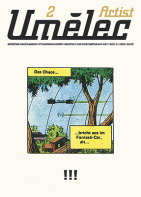
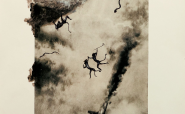
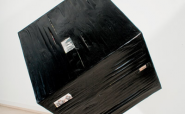
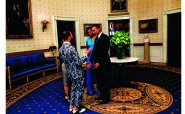

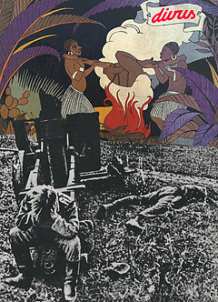






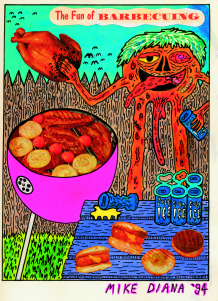




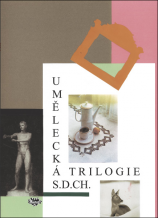
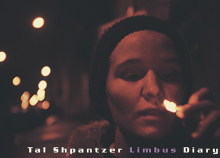

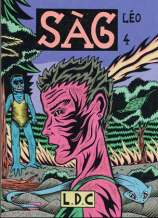


 We Are Rising National Gallery For You! Go to Kyjov by Krásná Lípa no.37.
We Are Rising National Gallery For You! Go to Kyjov by Krásná Lípa no.37.
Комментарии
Статья не была прокомментированаДобавить новый комментарий